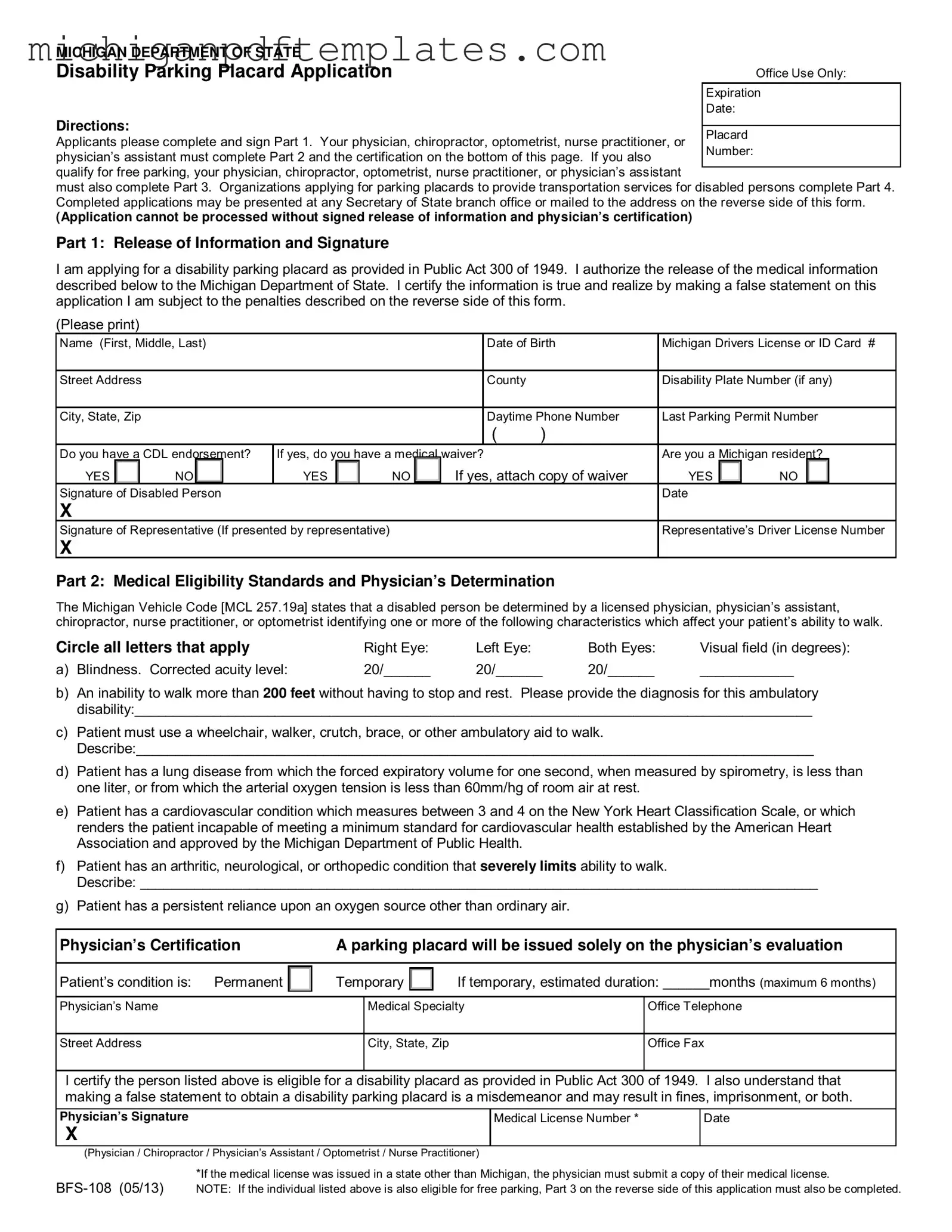Fill in Your Bfs 108 Michigan Form
The BFS 108 Michigan form is an application for a disability parking placard issued by the Michigan Department of State. This form requires personal information from the applicant and medical certification from a qualified healthcare provider to determine eligibility. To begin the process of obtaining your placard, fill out the form by clicking the button below.
Get Your Form Now

Fill in Your Bfs 108 Michigan Form
Get Your Form Now

Get Your Form Now
or
▼ PDF Form
Finish this form quickly and move on
Fill in and complete Bfs 108 Michigan online quickly.